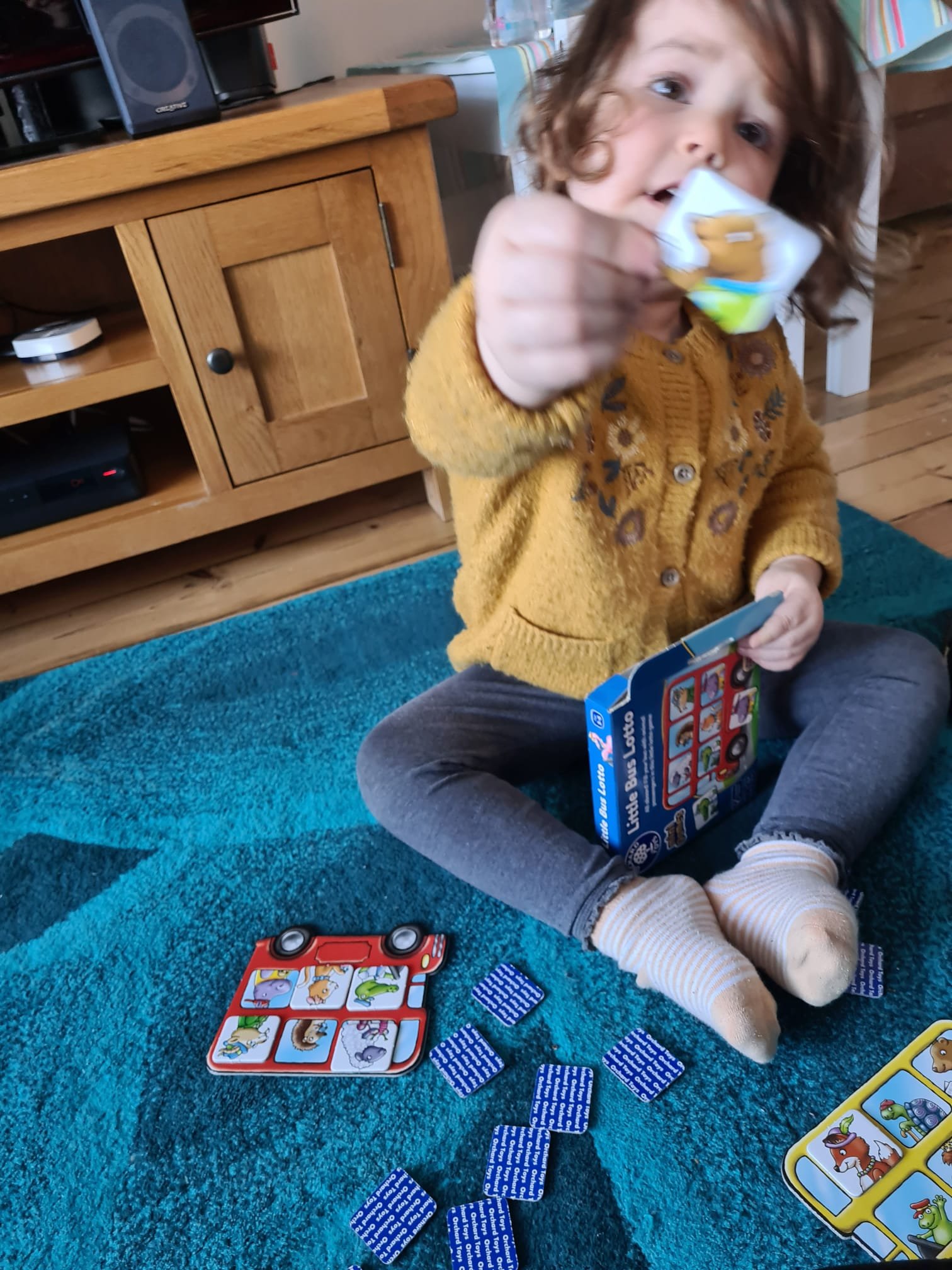Getting the most from Orchard Games
Getting the most from Orchard Games
We are big fans of Orchard Games in our house. We have quite a few and both of my girls have really enjoyed playing the games.
If you haven’t tried them out yourself, the Orchard Games range has a variety of simple, structured games for playing with young children. Everything from lotto to shopping!
Each game targets an area of early learning development such as matching, sorting or counting. Regardless of which game you are playing, there are great opportunities to squeeze some extra communication and language development work in when you are playing.
Turn Taking
Turn taking is such an important part of early social interaction. Communication is a two-way exchange, and we need to take turns in a successful conversation. Games provide the opportunity to learn about and practice taking turns. Start with games with two players, you, and your child. Encourage your child to say who is taking the next turn, ‘my turn’ or ‘your turn’. This helps your child to become more aware of turn taking and to begin to anticipate when it might be their turn again.
Once your child is successfully taking turns with one other person, add a third person into your games.
Opportunities for language
Orchard Games provide countless opportunities to use language and extend the language your child is using. Extend what your child is saying about the pictures by adding one more element to what they say and modelling the new phrase for them.
Label the item your child is holding or pointing to e.g. dog
If your child is labelling, extend this label into a two-word phrase e.g. grey elephant or muddy pig
Once your child is using two-word phrases begin to extend this by modelling sentences about the cards e.g. The muddy pig is laughing.
You can keep extending language as your child’s skills improve so that they are giving more information in the sentences they use and begin to ask them simple ‘who?’ or ‘what doing?’ questions e.g. What is the dog doing?
Phonological awareness
Phonological awareness is the ability to listen to, identify and manipulate sounds in words. These skills are important for developing their speech as well as their reading and writing skills later on.
Simple games provide lots of opportunity to increase your child’s awareness of sounds.
When playing games talk about sounds. What sound does a lion make? What sound does the bell make?
When looking at a picture on a card, clap out the syllables in the word. E.g. banana – ba/na/na
Talk about the sounds at the beginning of words.
Keep in mind that the main aim of the games is to have fun! A lighthearted and playful approach will allow for important opportunities to connect and share enjoyment.
For more tips and tools on supporting early development visit the Confident Communicators Facebook group.



